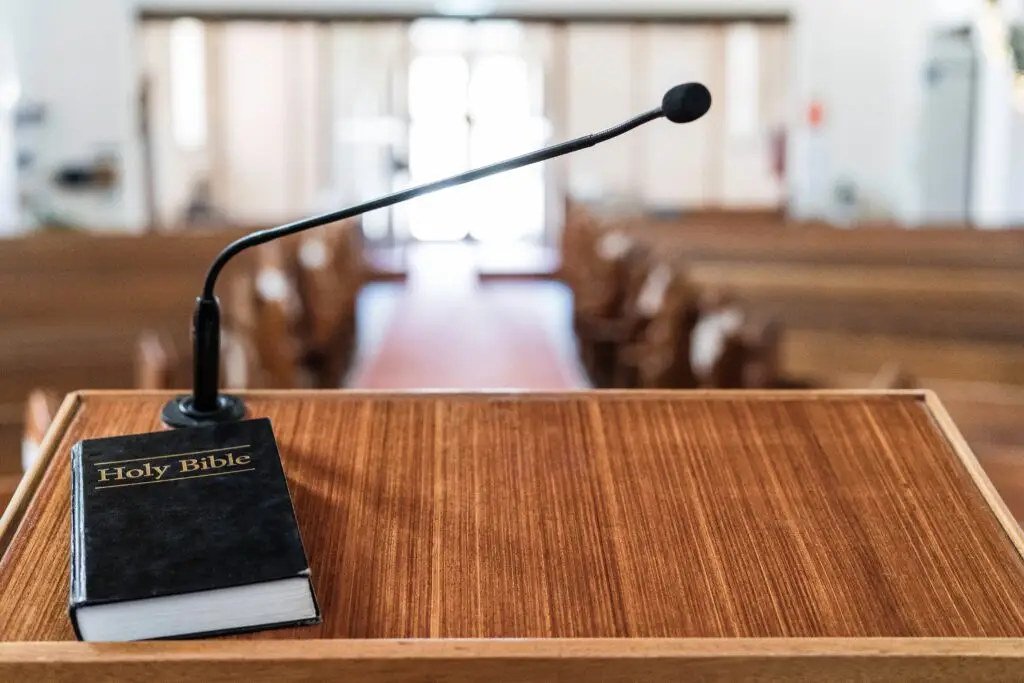Saying goodbye to someone you love and who has always been a part of your life is not a happy experience. It can cause your emotional equilibrium to be out of balance for a long time. Every grief experience is a different one. Grief, by definition, is losing someone or something significant in your life.
When I lost a much loved pet as a child and even as an adult, it saddened me. But such a loss was a bump in the road compared to the life-changing experience of losing a father at age 18 and now the passing of my mother as an older adult.
For almost 30 years as a pastor, I stood by the graveside of church members I loved and admired and walked with them through grief. I felt like I knew something of the experience because I became acquainted with grief at such an early age.
Yet, with the passing of my mother and in reflecting over her life as it interconnected with mine, I have come to believe I am still in preschool in the sad business of grieving.
In the first century, Paul spoke to the early Christians about grief, knowing that they had little background with the Christian faith and how to face the loss of loved ones. This generation of believers felt Jesus would return in their lifetimes as every generation should believe. Now, they were watching their loved ones pass from the scene and wondering how to respond.
In I Thessalonians 4:13, Paul, the mentor to young Christians and pastor to the grieving church family, declared, “We do not want you to be uninformed, brothers, concerning those who are asleep (those who have died), so that you will not grieve like the rest, who have no hope.”
As I reread that verse this week in the Holman Christian Standard Bible, the words “. . . grieve like the rest, who have no hope . . .” leaped off the page and grabbed my aching heart. Paul was making several statements in the brief but beautiful verse.
First, he was saying it is okay to grieve. There is nothing wrong with grieving. In fact, the apostle was assuring the young believers that grieving was good and healthy. We must grieve just like we must breathe. In times of loss, grieving is emotional breathing. It sustains life!
Additionally, the apostle Paul was setting forth the context of grief. He was magnifying the role and blessing of hope in the experience of our grieving. Jesus Christ is One who keeps His promises. Just as certainly as He walked on this earth and lived in human form, He will return and reunite all who believe in Him.
This is an eternal hope! It is the kind of hope on which you can build your life. The hymn writer gave voice to this hope with the words of assurance, “My hope is built on nothing less than Jesus’ blood and righteousness . . . On Christ the solid rock I stand.”
Unbelievers grieve with a sense of finality and fatalism. They walk away from the cemetery with a void. There is no hope in their lives, and without hope they cannot grieve well. They need the hope found in Christ because it is the oxygen of souls. This hope gives them the power to breathe emotionally. Without it, they are panting for every emotional breath.
I am not particularly fond of acrostics. Some people, like my pastor, can do them well with artful dignity. When I attempt the exercise, I feel the outcome is cheesy and cheap. But today I am going to try my hand at this form of communication. I want to help you grieve with hope.
Therefore, I am using the word GRIEF acrostically for the purpose of offering some valuable lessons on grieving with hope in Christ.
G. Guilt feelings have to be handled appropriately in times of grief. There are always moments when you say to yourself, “I could have done more. I should have been there more often for her. I would do some things differently, if given the opportunity.”
I believe this is a natural emotion and to some extent it can be healthy. We always have an idealistic view of life. Situations should be perfect and people ought to be perfect, especially at the time of the passing of a loved one. Well, that makes for good 1950s television, like Father Knows Best or Leave it to Beaver, but in reality all families have less than ideal relationships which become exacerbated during the time of grief.
The blame game can be played between siblings and within yourself. But what good is such an effort? You can’t deal with all your negative emotions in one volcanic moment and expect to feel good about yourself later. It only makes things worse.
Guilty feelings come in times of grief. That is a reality. Some have only a few of them, others are plagued with a heavy load of them. However, in time one must process them and sift through them and say to oneself, “Okay, life has not been perfect. I have made some mistakes. Others have made some mistakes. Even my loved one has made some mistakes.”
But now the healing of damaged emotions must be metabolized through a sense of hope in Christ — a hope which is grounded on Romans 8:28, a hope in the One who can work with the good and bad experiences of life and make His masterpiece out of it.
R. Reflecting over your life with the loved one is both natural and necessary for grieving with hope. To say life is brief is to state the obvious in the most trite way. Although it may be trite, it is also true. Life is short, even in its longest span of years.
As we grow older, the childhood experiences that we tucked away in our minds as we were busy with the challenges of life come easily to us, especially when we grieve. During this last month, sitting in a hospital room and dealing with the passing of my mother, those early childhood recollections have come out of the attic of my mind. I can remember the tender moments when she took care of me when I was a sick child. I can recall her worrying about me when I was facing some struggle in life, trying to grow up.
I recall our standing side by side at the cemetery saying goodbye to my father. I can see her at my grandfather’s funeral as she did her quiet grief work in dealing with his death.
Reflecting over the past helps process those guilt feelings in a healthy way. They remind you that life has been filled with the ups and downs, but through it all there was the power of God’s sustaining presence. There was hope in the midst of grief.
I. Introspection is always a part of hopeful grieving. When you experience the recollections of the past, you then can begin to look within yourself and see how your loved one, however imperfectly, affected you in some positive ways. Introspection in the busy world of our time is a friend to us.
Grief over a loss is one of the stop signs in life when you come to a point of fully stopping for introspection. I have an ongoing argument with my wife and daughters about stop signs. They slow down, but they don’t come to a full stop. My daughters have become acquainted with police officers who have given them written reminders that a stop sign means to stop, not just slow down.
The same is true in life. Grief is a stop sign, not a slow down sign. I am a Type A personality, which means I am an activist to get things done. I want to see results. I must confess to you that I am a Type A personality in a Model T body. This past month, when my mother fell and broke her hip, I slowed down. When she passed away, I slowed down but on Wednesday of this week I came to the stop sign. I felt the weight of the grief finally hit me, and I stopped long enough to acknowledge it as a time to grieve with hope.
E. Encouraging others is a positive by-product of grieving with hope. Again, the apostle Paul addressed that truth so forcefully in II Corinthians 1:4, “He comforts us in all our afflictions, so that we may be able to comfort those who are in any kind of affliction, through the comfort we ourselves have received from God” (HCSB).
That comfort comes from the God of all comfort. He is the One who provided Jesus Christ, our eternal hope. With that comfort from the very heart of God, we can be channels of His hope. There is no comfort to give unless there is hope in Christ!
F. Faith in the Lord can be deepened in a time of grief. When we grieve with hope, we exercise the muscles of our faith. We become toned up and fit for what life brings our way. Grief is a part of this imperfect life we live. Hope in Christ makes the difference. We can have FAITH in that HOPE!!!
One of the most popular bestselling books currently is The Last Lecture by Randy Pausch. Randy is a computer science professor at Carnegie Mellon University. In 2006, he was diagnosed with one of the worst forms of cancer: pancreatic cancer. Since then he has been taking all kinds of treatments, buying some time with his wife and three small children.
On September 18, 2007, Randy gave his last lecture to his students. It has been one of the popular viewings on YouTube since the lecture was offered. The book is essentially an expansion of the lecture. It is not a weighty existential presentation but rather a light-hearted perspective on achieving your childhood dreams.
Truthfully, I admire Randy Pausch. It takes intestinal fortitude to stand before people as a person known to be dying and tell what is on your mind and in your heart. For that Randy Pausch is to be applauded. However, there was very little hint in the lecture and in the book about faith.
Remember when the apostle Paul gave his last lecture in II Timothy 4. He said of himself, “I have fought a good fight, I have finished my course, I have kept the faith.” Paul’s testimony in his last lecture was that he had kept the faith. He is a stellar example for all of us who face the trials and troubles and tests of life.
Recently the storms that ravaged the Midwest served to remind us that material things are so, so temporary. Every time we have such episodes which capture the news, there are people who are interviewed following the disaster. They look stunned and devastated and rightly so.
There are a few times when some people offer a testimony similar to this, “Well this storm has destroyed almost everything, but we are still alive and we have hope in God. We will rebuild and we will overcome this tragedy.”
That is grieving with hope, knowing that life is tough, even at its best. Yet there are some things death cannot take away. There some things that storms cannot destroy. There is HOPE in CHRIST!




